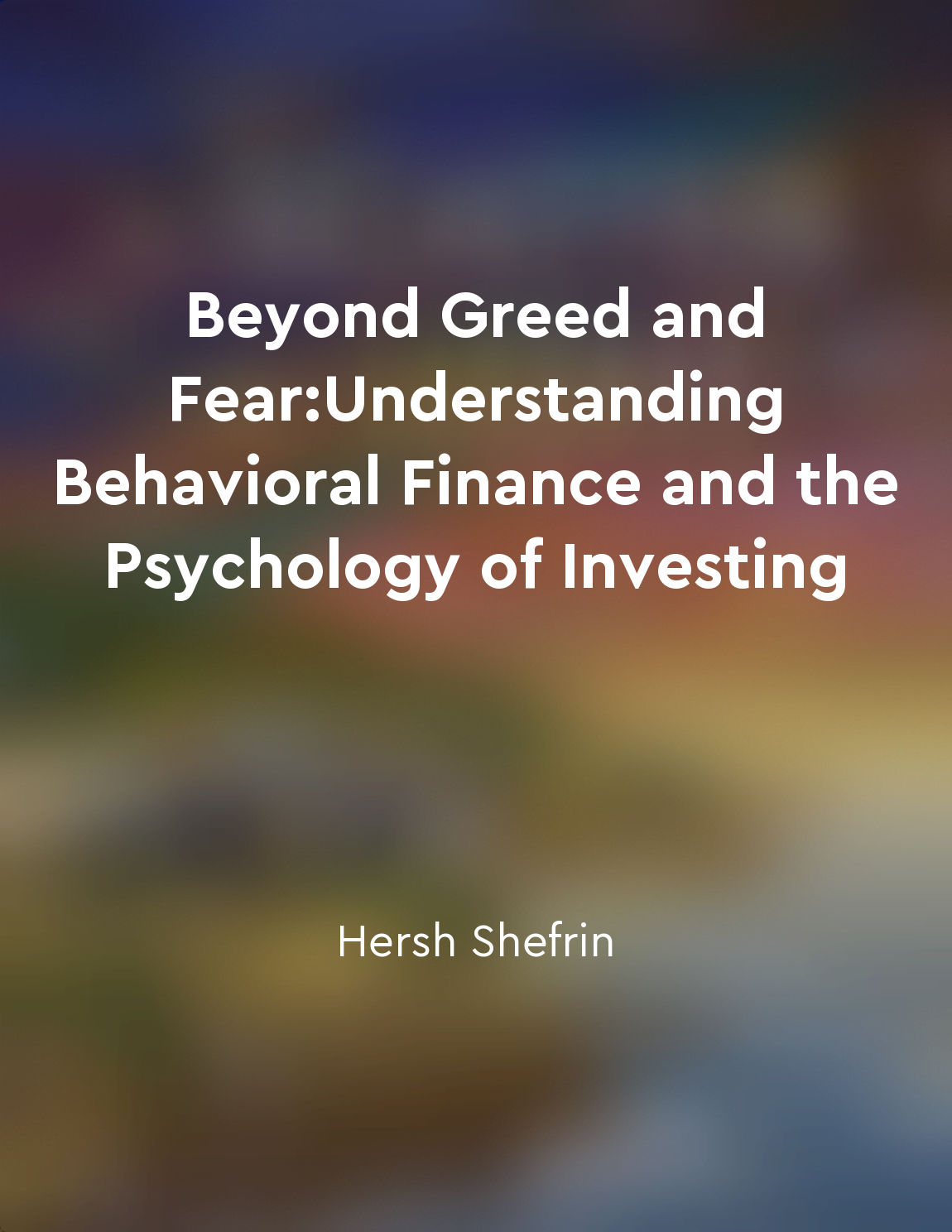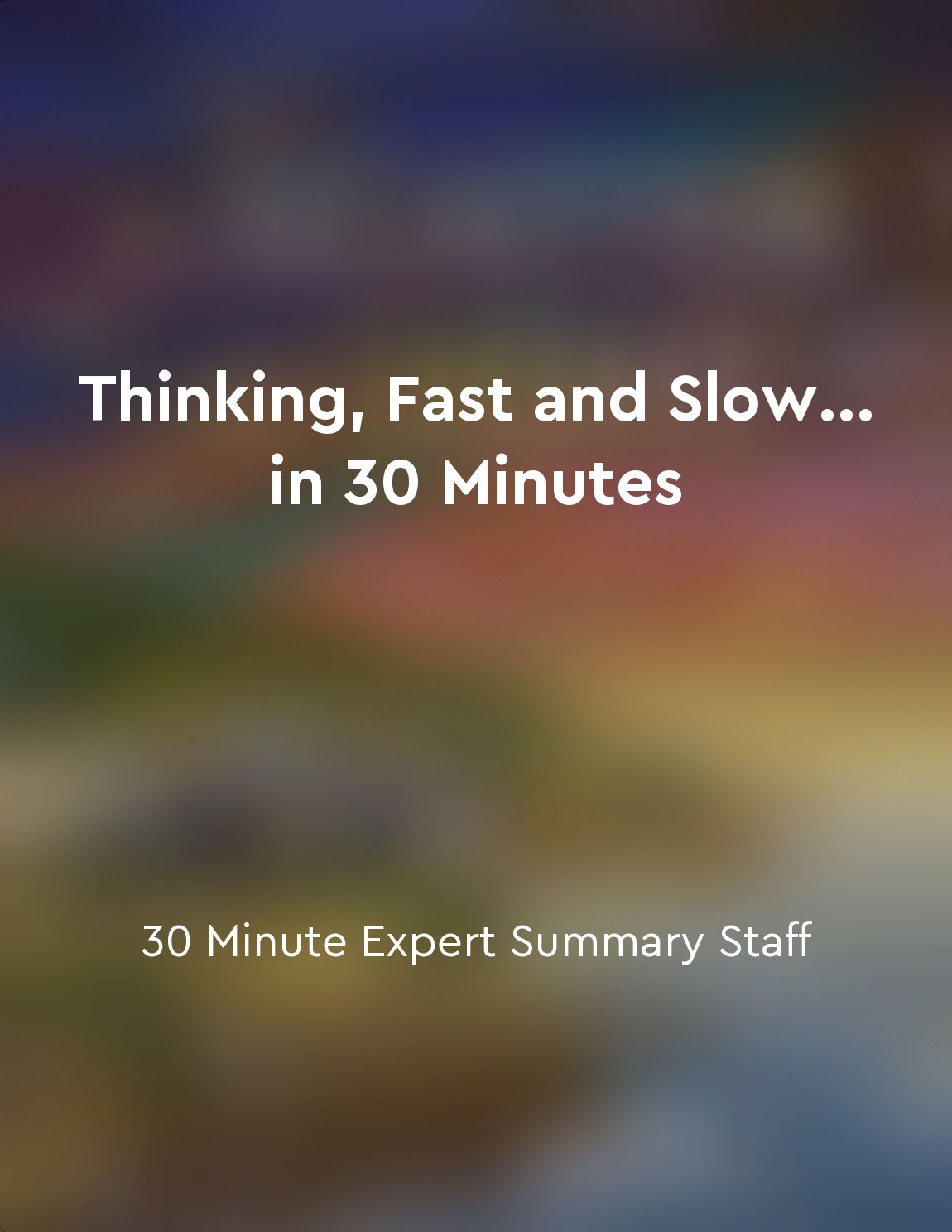Overconfidence can lead to poor decisions from "summary" of Judgment in Managerial Decision Making by Max H. Bazerman,Don A. Moore
The phenomenon of overconfidence represents a common cognitive bias that can significantly impact decision-making processes in managerial contexts. When individuals exhibit overconfidence, they tend to have excessive faith in their own abilities, knowledge, and judgments, leading them to believe that they are more competent and accurate than they actually are. This overestimation of one's capabilities can have detrimental consequences, as it can lead individuals to make suboptimal decisions based on faulty assumptions and incomplete information. One of the key reasons why overconfidence can result in poor decision-making is that it can lead individuals to ignore or downplay important risks and uncertainties associated with their choices. When individuals are overly confident in their assessments, they may fail to adequately consider alternative perspectives, potential pitfalls, and potential sources of error. This can prevent them from engaging in thorough and critical analysis, resulting in decisions that are based on flawed reasoning and incomplete information. Moreover, overconfidence can also fuel a tendency to disregard feedback and information that contradicts one's initial beliefs and assumptions. When individuals are overly confident in their judgments, they may be less likely to seek out and consider information that challenges their existing views, leading to a confirmation bias that reinforces their overconfident stance. This can result in a lack of openness to new ideas and perspectives, hindering the ability to make well-informed decisions that take into account all relevant factors. In addition, overconfidence can contribute to a false sense of invulnerability and a reluctance to seek out advice and input from others. When individuals are excessively confident in their own abilities, they may believe that they have all the answers and that seeking input from others is unnecessary. This can prevent them from leveraging the diverse expertise and perspectives of their team members, leading to decisions that are based on narrow and limited viewpoints.- The concept of overconfidence as a cognitive bias underscores the importance of self-awareness, humility, and a willingness to challenge one's own assumptions in the decision-making process. By recognizing and mitigating the effects of overconfidence, individuals can enhance their ability to make sound and well-informed decisions that are based on a comprehensive understanding of the complexities and uncertainties inherent in managerial decision-making.
Similar Posts
Value investing focuses on buying undervalued assets for longterm gain
Value investing is a strategy that revolves around the idea of purchasing assets that are trading below their intrinsic value. ...

Availability bias leads to distorted decisionmaking
Availability bias is a cognitive shortcut that occurs when people make decisions based on information that is readily available...

Focusing on the long term leads to better financial outcomes
It's easy to get caught up in short-term thinking when it comes to money. We're bombarded with messages about the latest hot st...
Timing is crucial in warfare
Timing plays a critical role in the success or failure of warfare. The ability to strike at the right moment can make the diffe...
Efficient market hypothesis suggests stock prices reflect all available information
The efficient market hypothesis suggests that stock prices reflect all available information. This means that the prices of sto...
Cognitive dissonance influences financial behavior
When we make financial decisions, we often encounter conflicting thoughts and emotions. This internal conflict is known as cogn...

Overthinking can affect relationships
When we start overthinking in a relationship, it can create unnecessary stress and tension. We may begin to question everything...
Foster a growth mindset in individuals and organizations
The key to success in any field is not merely about talent or intelligence. It is about having a growth mindset - the belief th...

Rational individuals consider the longterm consequences of their actions
Rational individuals must take into account not just the immediate effects of their actions, but also the long-term consequence...

Cognitive strain impairs rational thinking
When our minds are under strain, our ability to think rationally is compromised. This concept is supported by numerous studies ...

